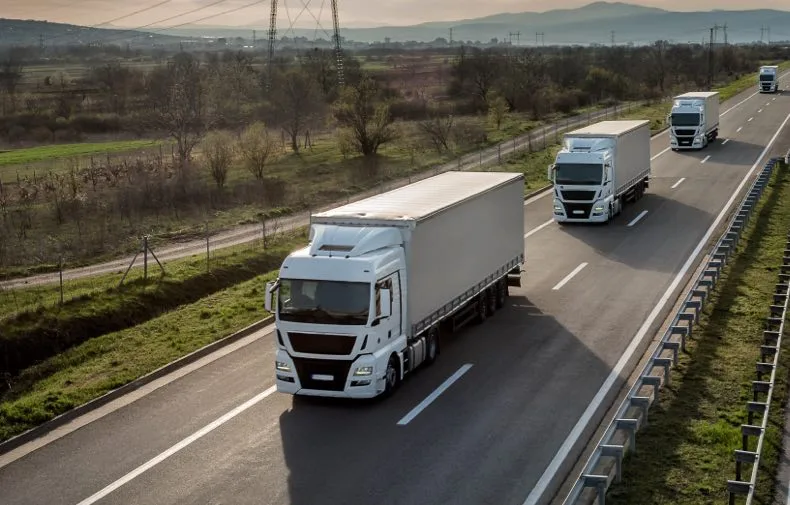Managing a fleet of vehicles, whether large or small, presents a continuous challenge, particularly when it comes to controlling fleet operating costs. Keeping expenses under control while ensuring smooth operations is essential for businesses that rely on their fleets for daily functions.
With advancements in technology, fleet managers now have greater access to data that can aid in refining the fleet management process. By carefully analysing expenditure, monitoring vehicle health, and encouraging better driving habits, businesses can find practical ways to reduce overall fleet operating costs without affecting productivity.
Here, we explore five effective methods that can assist businesses in keeping their fleet operating costs in check.
1. Reducing Fuel Expenditure
Fuel remains one of the most significant contributors to fleet operating costs. Without effective monitoring, fuel consumption can spiral out of control, resulting in avoidable expenses.
One of the simplest ways to manage fuel costs is through efficient route planning. Mapping out routes in advance to avoid congestion and unnecessary detours can have a direct impact on fuel savings. Implementing a fleet management process that includes GPS tracking allows managers to assess traffic conditions and plan accordingly.
Driver behaviour also plays a crucial role in fuel consumption. Harsh braking, excessive idling, and erratic acceleration all contribute to wasted fuel. Training drivers to maintain consistent speeds and avoid unnecessary fuel wastage can lead to considerable savings over time.
Investing in telematics solutions can further aid in monitoring fuel usage, enabling fleet managers to track efficiency levels across all vehicles and drivers.
2. Encouraging Better Driving Habits
A recent report highlighted that three-quarters of UK fleet managers believe poor driving behaviours negatively impact business operations. This underlines the importance of addressing driver conduct as part of the fleet management process.
Providing regular feedback to drivers about their driving habits can significantly impact fleet operating costs. Simple adjustments in driving behaviour can lead to savings, including:
- Reducing overall speed to prevent excess fuel usage.
- Turning off idling engines when vehicles are stationary.
- Checking tyre pressure to ensure fuel efficiency.
- Following well-planned routes to avoid unnecessary detours.
Regular training sessions and digital driving assessments can provide fleet managers with data-driven insights into driver performance, helping to create a safer and more cost-efficient fleet.
3. Using Telematics to Track Efficiency
Integrating telematics into fleet operations provides real-time data that can significantly influence decision-making within the fleet management process. These systems allow managers to monitor various aspects of vehicle activity, such as:
- Driver behaviour, including speed, braking patterns, and fuel efficiency.
- Route efficiency, identifying better routes to cut down on unnecessary mileage.
- Engine performance, ensuring vehicles are running at their best capacity.
By utilising telematics, businesses can gain deeper insights into the everyday performance of their fleet, identifying key areas where savings can be made and inefficiencies addressed. Over time, this technology helps lower fleet operating costs by reducing fuel wastage and improving vehicle longevity.
4. Implementing a Preventative Maintenance Schedule
Vehicle repairs and maintenance represent one of the largest ongoing expenses in fleet operating costs. Waiting for vehicles to break down before addressing mechanical issues is an expensive and inefficient approach.
Developing a preventative maintenance strategy ensures vehicles are serviced at regular intervals, reducing the likelihood of sudden breakdowns and expensive emergency repairs. This includes:
- Routine inspections to detect potential issues before they escalate.
- Scheduled servicing to keep vehicles running smoothly.
- Tyre checks and oil changes to maintain vehicle efficiency.
A well-structured fleet management process that incorporates automatic service reminders can prevent unnecessary repair costs and extend the lifespan of each vehicle in the fleet.
5. Prioritising Safety to Prevent Financial Losses
Driver safety is a critical factor in reducing fleet operating costs. Even minor collisions can result in substantial expenses, including vehicle repairs, insurance claims, and legal complications.
Encouraging safe driving habits throughout the fleet and equipping vehicles with modern safety features, such as dash cameras and blind-spot monitoring systems, can help in preventing accidents. Regular safety training sessions provide drivers with guidance on hazard awareness, defensive driving, and compliance with traffic regulations.
Maintaining a strong safety culture within the fleet reduces vehicle downtime, limits costly insurance premiums, and ensures fleet operations run without disruption.
Managing Fleet Costs with Smarter Solutions
Reducing fleet operating costs requires a combination of proactive strategies, data-driven decision-making, and ongoing monitoring. By refining the fleet management process, businesses can create a more efficient system that keeps expenses in check while ensuring vehicles remain roadworthy.
If cutting unnecessary costs is a priority, a well-structured fleet management solution can provide the tools needed to monitor, assess, and implement practical cost-saving measures and book a demo.
